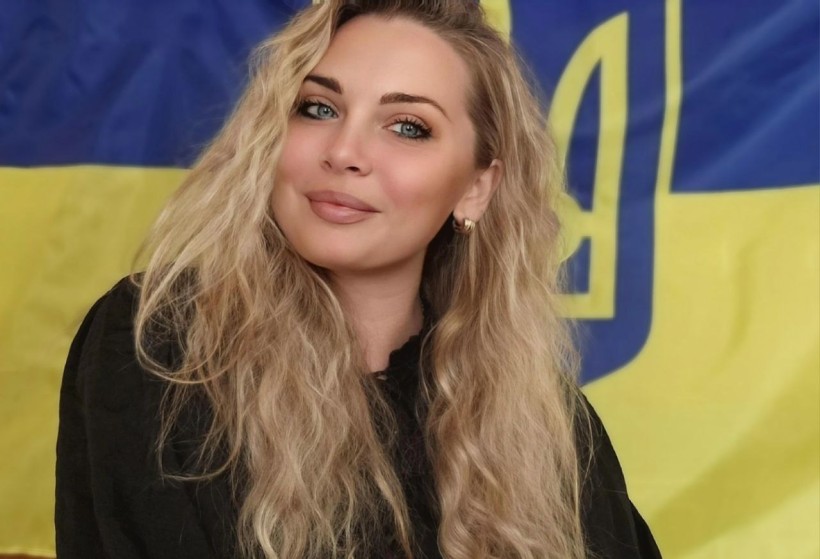
Participant of the regional contest "Young Person of the Year – 2025" in the nomination "Youth Worker of the Year" Khrystyna Vasyliuk
My name is Khrystyna Vasyliuk. I am a youth worker who doesn't stop. This isn't a slogan, but a brief description of my journey. I don't just work for the youth—I am part of the youth. With its pain, challenges, actions, and strength. I grow with the community, change with the country, and do everything so that young people have a chance not just to survive, but to live, dream, and act.
Today, I am the deputy director of the Cultural and Information Center of frontline Kostiantynivka, a member of the youth councils at the Donetsk Regional State Administration and the Kostiantynivka City Council, and the communications manager of the public organization "Responsible Citizens." Behind each of these roles are specific people, decisions, and projects that give youth a voice, space, and resources.
My path in youth work began with culture. At the Cultural and Information Center, in partnership with the Kostiantynivka City Council, I organized over 600 events, including 24 large-scale festivals. One of them—"Free Steppe"—became a symbol of rethinking the regional identity of Donetsk region. I implemented patriotic education programs, supported cultural exchanges between eastern and western regions, and created environments where young people could turn their own ideas into reality.
On February 24, like everyone else, I was woken up by shelling. But within a day, I realized that my anxiety had to turn into action. That's how the volunteer movement in Kostiantynivka was born. Initially—through a public page, and later—as part of the coordination headquarters at the city's military administration. We organized evacuations, delivered humanitarian aid, set up shelters, and supported victims.
Later, my activities grew into project work in the humanitarian sector. As part of the public organization "Responsible Citizens," I administered financial aid for affected families, worked in the most dangerous areas of the Donetsk region, and provided communication support for 8 large-scale humanitarian and educational projects in 4 regions of Ukraine. We collaborated with UNICEF, OCHA, Mercy Corps, World Vision, and other international partners. In total, these initiatives reached over 500,000 people, including youth, who received not only help but also new opportunities for development.
Despite the war, I did not stop working with youth. On the contrary—this work became even more important. I created "Tochka Opory" (Point of Support) and the "Youth-360" platform for development, communication, and psychological support. Our meetings even took place in shelters. And if someone says this was "not the right time," I will show a photo of young people smiling after an event in a basement, because they were given a space to be themselves.
I implement events with a focus on identity, self-expression, community participation, psychosocial support, and education. These are not "check-the-box activities"—this is work that forms communities and proves that even on the front line, youth are a force.
As a member of the youth council at the Donetsk Regional State Administration, I am involved in developing the region's Youth Policy Strategy—with an emphasis on supporting IDPs, preserving identity, and youth participation in the recovery process. Together with the team, we implemented the "Donetsk Code" project with the support of UNICEF and the Donetsk Regional State Administration—a board game that forms a holistic understanding of the region for teenagers and young people, without prejudice or stereotypes. It has already been tested by over 300 participants and is actively used in schools and youth spaces. Being a co-author of such a tool is not only professional pride for me but also a way to show that the Donetsk region has its own voice and culture that are worth knowing.
In addition, I participate in advocacy, initiate public discussions, and represent the interests of youth in dialogue with authorities. At the national level, I present the community's experience at forums, establish partnerships with other regions, and attract new opportunities. I want people to talk about the Donetsk region not only in the context of war but as a region that creates, dreams, and acts.
Supporting the army is also part of my work. Since the beginning of the invasion, I have organized the procurement of ammunition, medicines, etc. And today—I am creating a series of meetings called "Guardians of the Nation," where young people can talk to soldiers. We overcome barriers, learn to understand each other, and talk about values. I also work with young soldiers, helping them with adaptation, self-awareness, and integration into community life.
My journey in youth work began in 2018, when I completed the basic training for the "Youth Worker" program. It was then that I realized that this was not just a career path—it was my calling, where I could be useful. Since then, I have constantly been developing and deepening my knowledge, having completed over 30 training programs and courses. This knowledge gave me a systemic vision of youth policy in wartime conditions—and I use it in my daily work with youth and communities.
I recently completed a career counseling training and am now working on creating a new educational direction for youth that will help them not only adapt to new realities but also find opportunities for development and fulfillment in the face of modern challenges.
With this, I am concluding my story, but not my work. Because as long as there is faith and a desire for change, I will always be here, ready to move forward to create new opportunities for youth. Thank you to everyone who is with me!